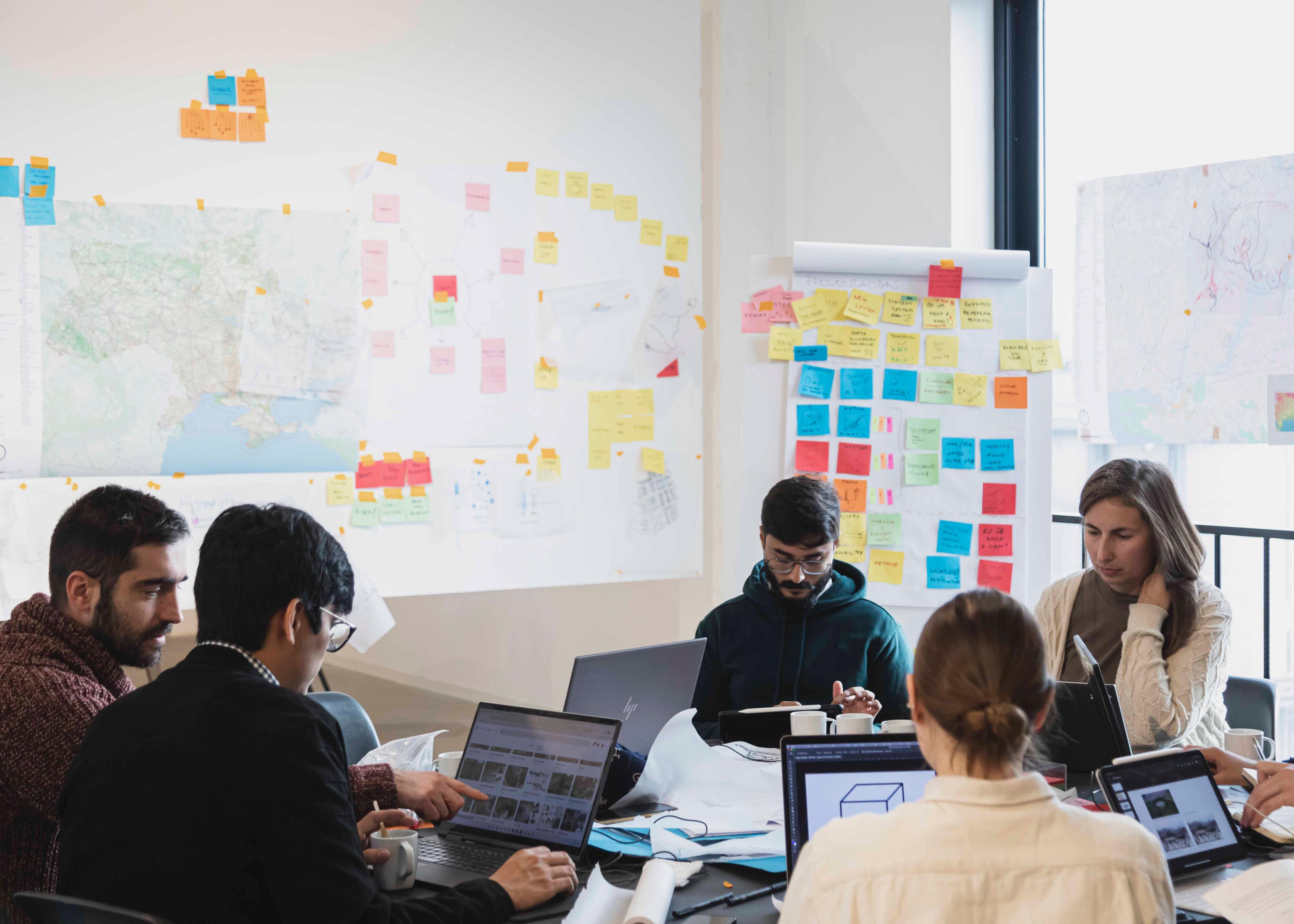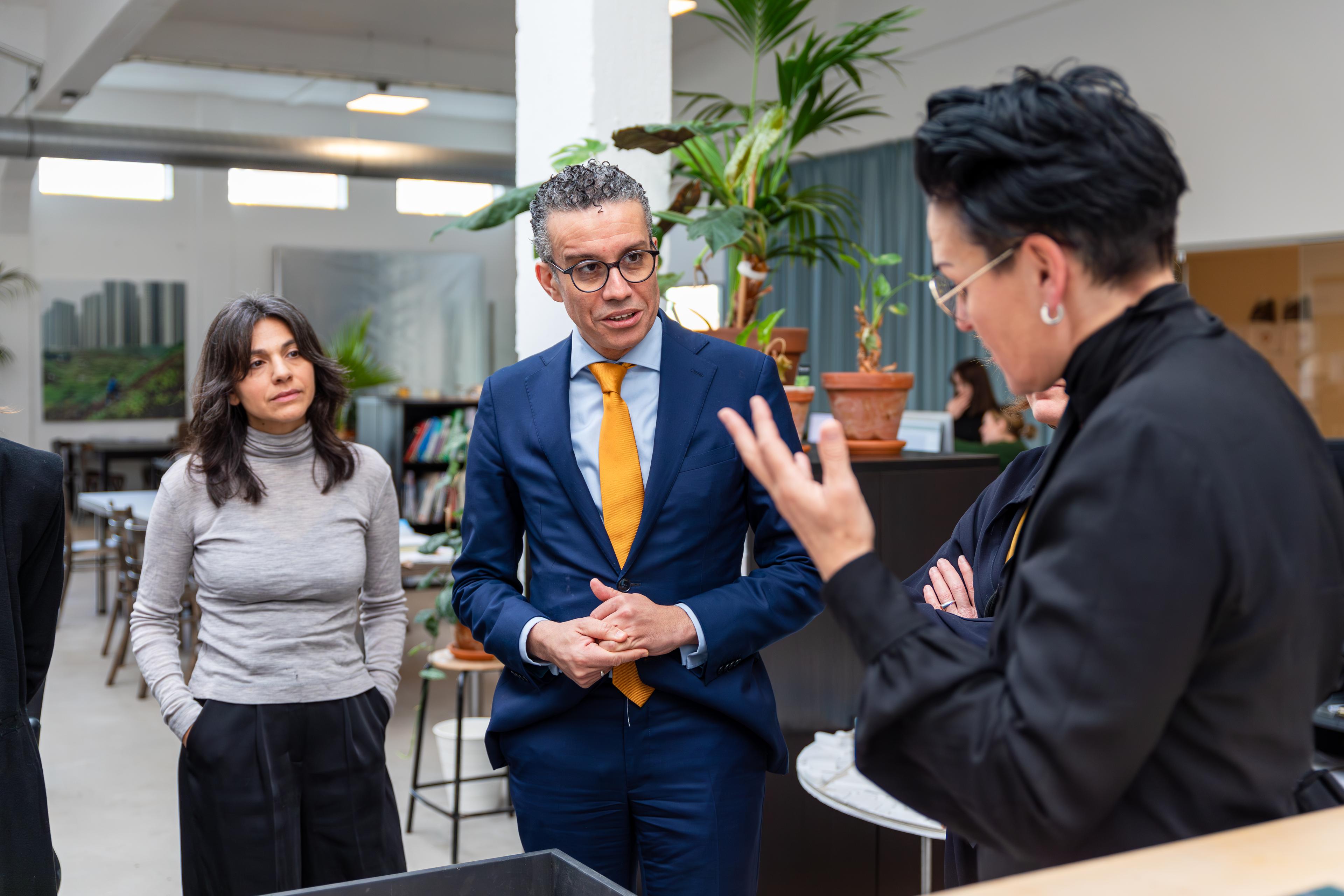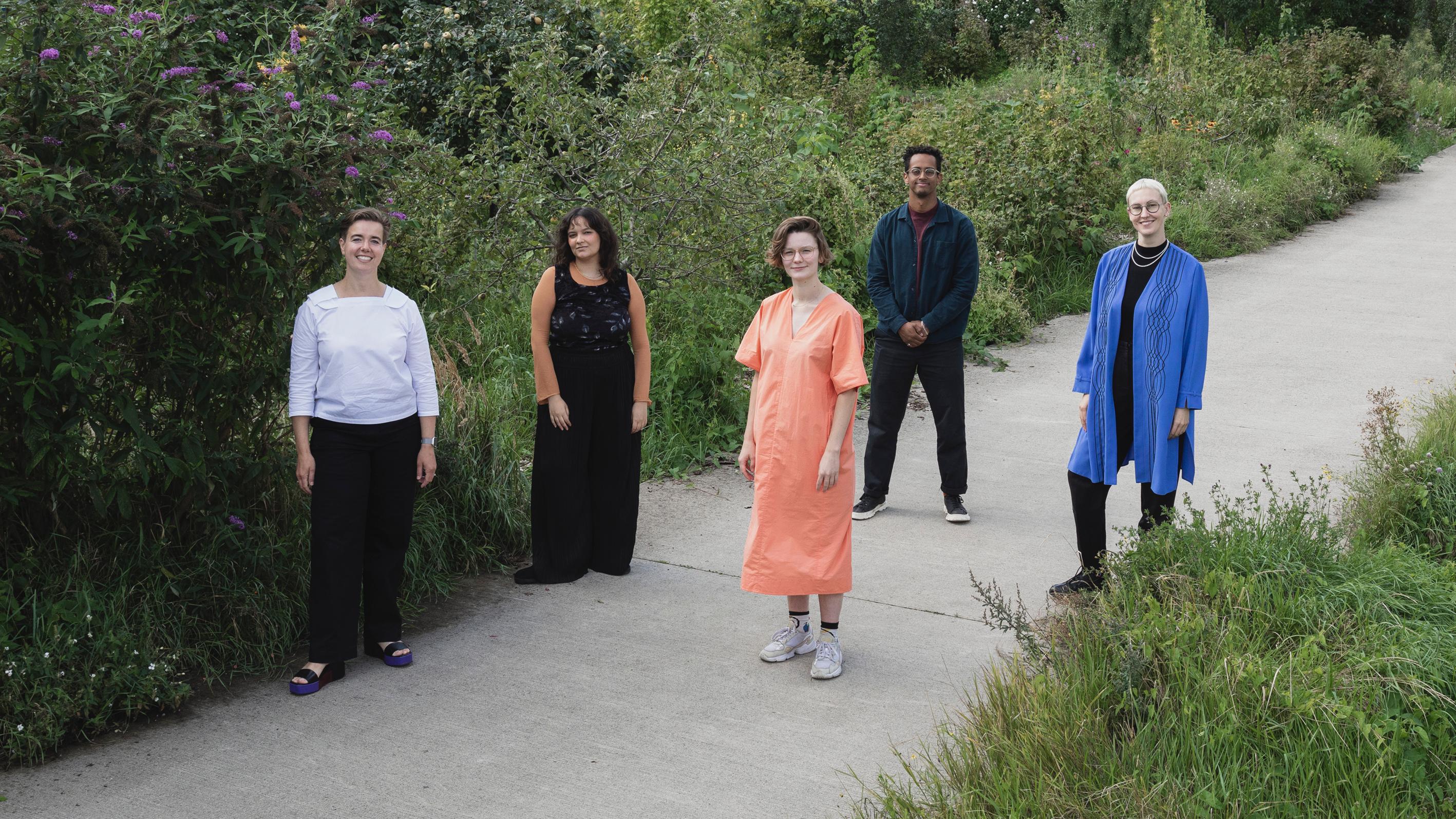The Ukrainian-Dutch collaboration Panorama Ukraine has been established to work on research by design strategies to rebuild Ukraine in a sustainable and resilient manner by leveraging Dutch expertise in water management and reconstruction. The Dutch Ministry of Education, Culture and Science (OCW) has decided to support this project with a substantial grant. The Architecture Biennale Rotterdam (IABR) is taking the lead on behalf of partners including the Ukraine – the Netherlands Urban Network (UNUN), Rebuild Ukraine, ReStart Ukraine, Urban Reforms, the Dutch Board of Government Advisors (CRa), the Nieuwe Instituut, the Independent School for the City and the Vereniging Deltametropool (VDM).
All collaborating partners are pleased that the Ministry of OCW has decided to facilitate this project by providing financial support. Architect and urbanist Floris Alkemade, the former Chief Government Architect of the Netherlands, previously donated his prize money from the Grote Maaskant Prize to the Panorama Ukraine project.
The overall project combines design, art, and culture with humanitarian and concrete aid to create a long-term vision for Ukraine. This week saw the launch of the first workshop, Working on Water. The long-term program of intensive knowledge exchange and expertise creation will continue to focus on the following reconstruction themes:
- Healthy and future-proof neighborhoods
- Sustainable energy production
- Circular economy
- Sustainable mobility
- Regenerative agriculture
- Regenerative water management and biodiversity
The program offers architects from different contexts the opportunity to learn with and from each other and to develop climate- and future-proof buildings.
Reconstruction Starts During the War
The Netherlands has a history of innovative water management and infrastructure development that can provide valuable lessons for Ukraine’s reconstruction efforts. The project was developed in collaboration with Ukrainian architects and urban designers.
The fact that Ukraine is still in the midst of a devastating war does not mean that we should not think about its reconstruction at this time. On the contrary, it is imperative to immediately start working on all of the design and physical reconstruction challenges the country faces, not only to give Ukrainians perspective and thus strengthen their hope and self-esteem, but also for pragmatic reasons – the tasks at hand are concrete and urgent.
Since the Russian invasion is unlikely to end any time soon, reconstruction must begin during the war, that is, under precarious conditions. If we put our shoulders to the wheel now, the actual reconstruction process can begin sooner rather than later.
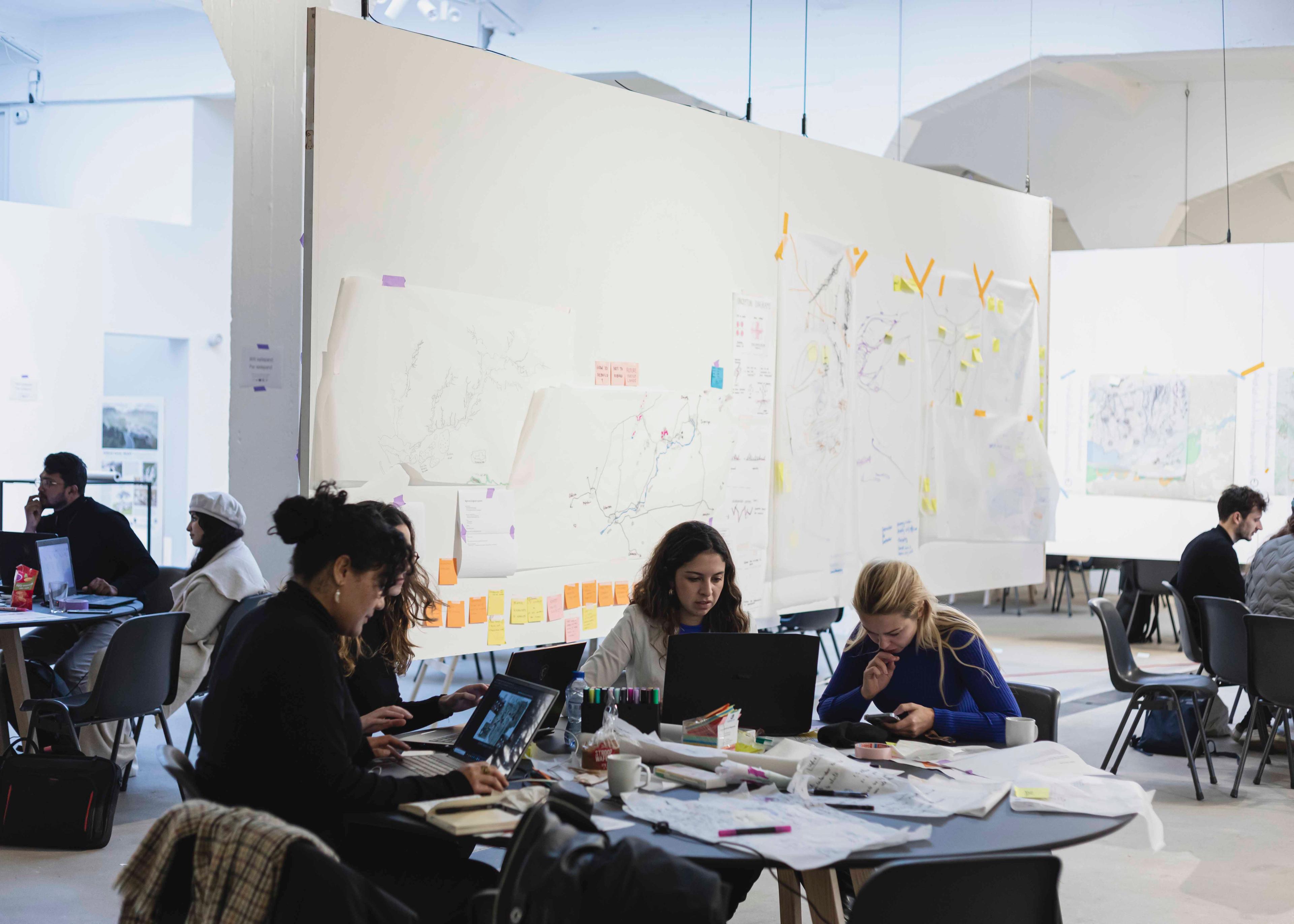
First Workshop: Working on Water
The first workshop of Panorama Ukraine, Working on Water, will take place this week in Rotterdam, the city also known as the ‘reconstruction city’ of the Netherlands. In the Keilepand in Rotterdam, from Monday 27 to Friday 1 December 2023, architects, urban designers (including West 8, Echo Urban Design, One Architecture & Urbanism, CRa, Felixx Landscape Architects & Planners, PosadMaxwan, KuiperCompagnons, KOTSIUBA Landscape Architecture, Urban Reform, Buro of Initiative Architecture (GA), Urban Curators, the Urban Council of the Union of Architects of Ukraine, LIAG, Delft University of Technology and Studio Space Station), water experts (including Carola Hein of Delft University of Technology and Daria Malchykova of the Kherson State University), and international talents from the Archiprix International network will come together to work, at different scales, on the reconstruction of the Dnipro Delta region in Ukraine, the area where the Kakhovka Dam in southern Ukraine was destroyed on 6 June 2023.
The workshop is based on the so-called Panorama Method, which involves working in a participatory and inclusive way on shared visions for the future, with practical implementations for the purpose of Ukraine’s reconstruction. A delegation of representatives from Odessa, Mariupol, and Mykolaiv will visit Rotterdam to spend a week exchanging knowledge about water in an urban environment, addressing issues ranging from the design of sewers to the organization of municipal water management. The program will be hosted by the City of Rotterdam and will conclude with the presentation of all research by design results that have emerged from the Working on Water workshop.
The lessons learned from this project will be shared in an online environment so that other areas and countries can benefit by using them as building blocks for reconstruction.
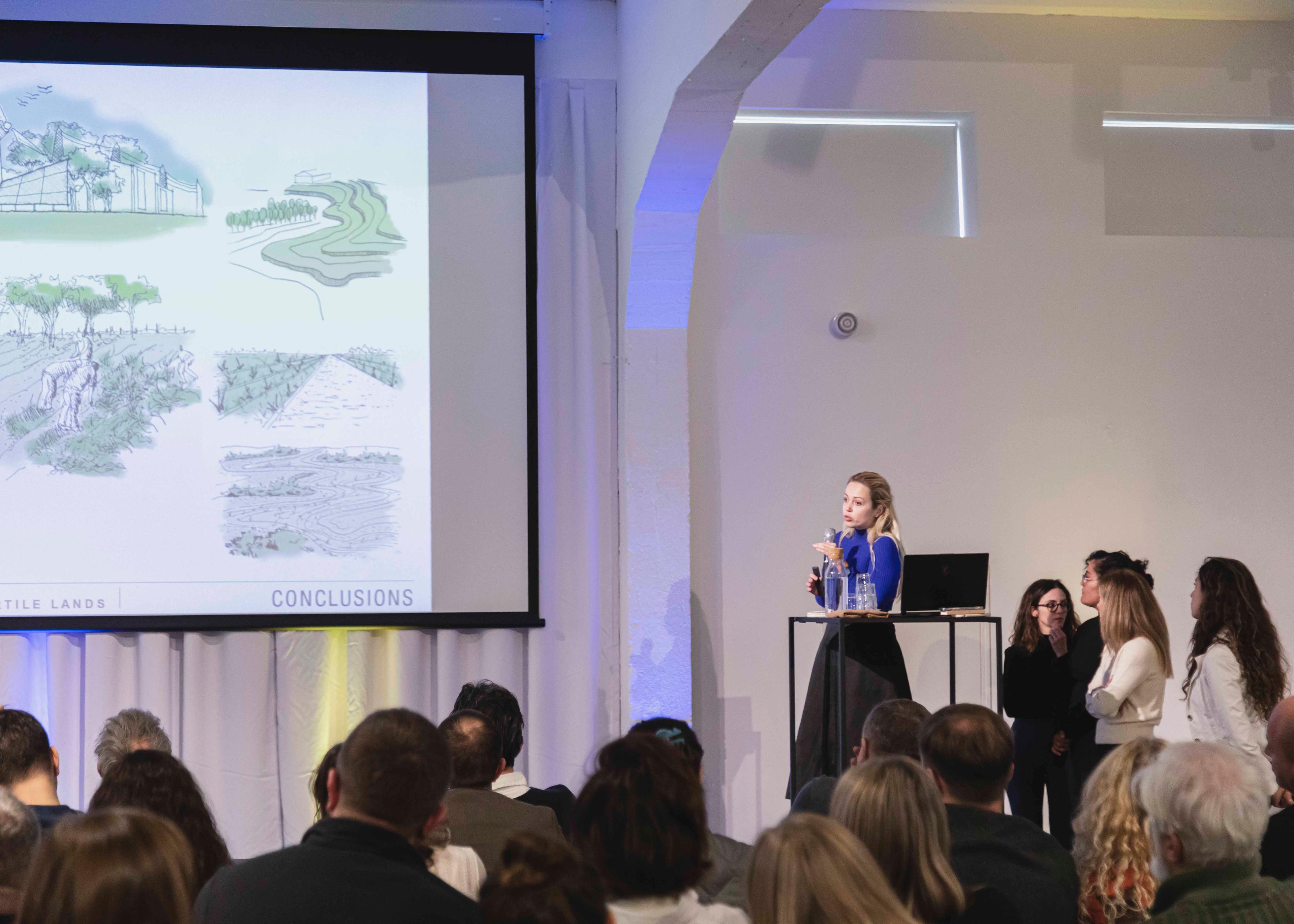
The Panorama Method
The so-called Panorama Method was developed to show how art, design, and culture can help us answer today’s big social questions and can lead to the realization of welcome structural improvements in the future. The aim of the Panorama Method is to create frameworks, approaches, and, through research by design, solutions for reconstruction. This method allows us to start rethinking and rebuilding now, without losing sight of the long-term vision. It is important to remember that reconstruction is always an integral challenge in which spatial, social, environmental, and economic issues are interconnected. However, to make things feasible, accessible, and understandable to all, the reconstruction challenge will be approached thematically and divided into several events focusing on different, interconnected themes. The goal is to gradually build knowledge, engagement, and lasting collaborations.
In 2018, the Dutch Board of Government Advisors (CRa) presented Panorama Nederland, a vision for the future of spatial planning in the Netherlands. This vision was developed in collaboration with independent network and think tank for metropolitan development Vereniging Deltametropool and landscape, architecture, and urban strategy office West 8.
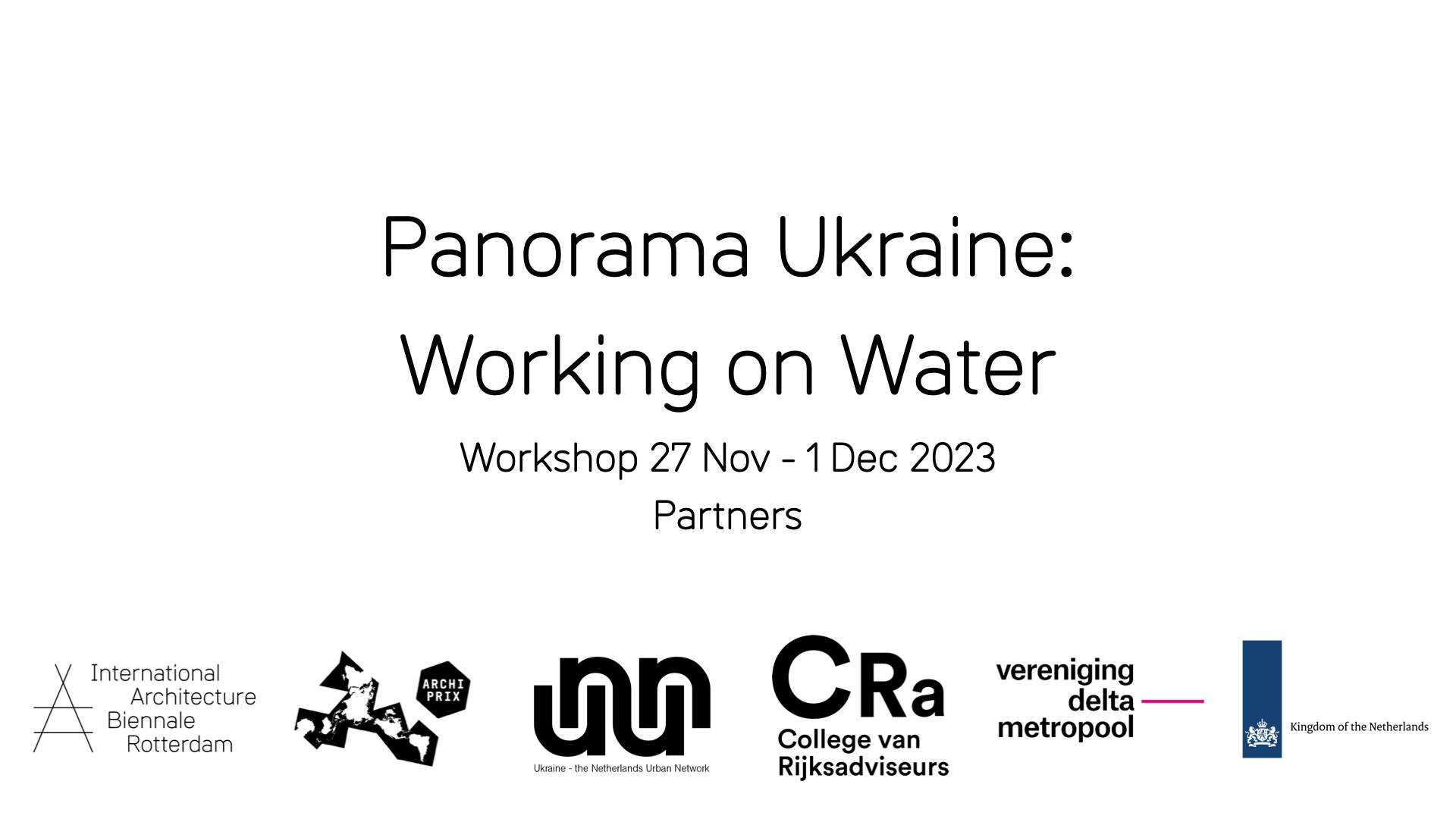
Collaborative Partners
In addition to the IABR, the Panorama Ukraine project, which will run until the end of 2024, involves many collaborative partners, including the Ukraine – the Netherlands Urban Network (UNUN), the Dutch Board of Government Advisors (CRa), Vereniging Deltametropool (VDM), Archiprix International, the Independent School for the City, the City of Rotterdam, the Nieuwe Instituut (NI), Embassy of the Kingdom of the Netherlands, and various local Ukrainian partners and stakeholders.
